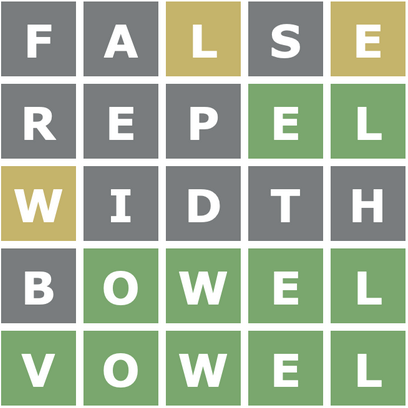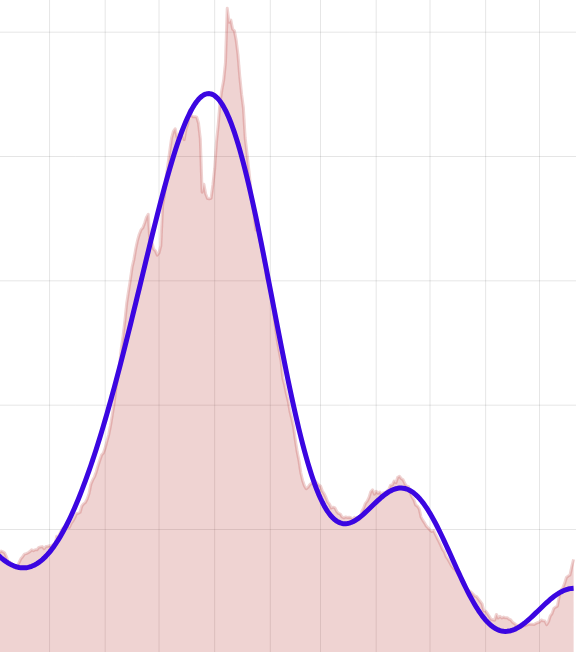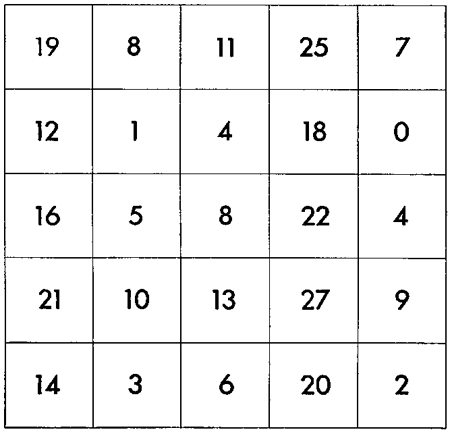Alpha Bravo
by Brian Hayes
Published 17 May 2009
WolframAlpha, the new whatchamacallit from Stephen Wolfram, is up and running. It’s also stumbling: I’ve gotten a fair number of error messages. But now is not the time for nitpicky griping. I just want to say bravo to the whole idea.
I applaud because Alpha invites us to use a computer for actual computing. Did you know that this machine that brings you YouTube and Facebook can also evaluate integrals and calculate correlation coefficients? What a thought!
I have ranted elsewhere about the sad decline of casual, inquisitive programming, and the lack of tools that will draw more people into that mode of exploring their world. WolframAlpha is not exactly the answer to my plea. It is a powerful computational tool cleverly disguised as a mild-mannered search engine. You’re not writing programs; you’re just “searching” for the roots of x2 + x – 1 or the limit of (1 + 1/n)n as n goes to infinity or the sine of 1050. I have a feeling that this search-engine metaphor may wear thin pretty quickly, but it may also serve its obvious purpose—breaking down barriers for those who wouldn’t dream of writing a line of Python or Lisp but who are masters of Google.
WolframAlpha is not the first thing of its kind. (My Sage friends will be quick to point out that they have had an online notebook interface up and running for a couple of years.) I’ve only just begun to explore Alpha, and I’m sure there are both treasures and pitfalls I haven’t glimpsed yet. Still, for the moment, I just want to cheer it on.
Responses from readers:
Please note: The bit-player website is no longer equipped to accept and publish comments from readers, but the author is still eager to hear from you. Send comments, criticism, compliments, or corrections to brian@bit-player.org.
Publication history
First publication: 17 May 2009
Converted to Eleventy framework: 22 April 2025




Alpha is more than just a web interface to Mathematica. It does have some search engine properties. At first, I was a bit skeptical, and I must concede that the syntax is extremely finicky and takes a while to get used to. But after playing with it for 30 minutes or so, I marveled at the engine’s ability to aggregate data and compare various sources. And this in many different area. As a teacher always scouring Wikipedia for real data to throw into my math, W|A is my new stop.
Some nitpicking gripes … The syntax seems very fussy. It would be good to have a guide on the site (perhaps I missed it). Some of the computations available appear to be limited to specific domains but this may be because I do not know how to call them. Some of the data sources are limited (e.g. the growth charts are CDC2000 and these are not used much outside of the US). There appears to be no ability to nest queries. For example “linear fit {log(GDP Africa), log(population Africa)}” does nothing useful. Having got those of my chest, I also wish to applaud this effort.
I am wondering how it will change math learning. Why learn a formula or an integral when WA will find it for you?
This column might be more than infinitesimally useful to read if only it bothered to describe to the reader what Wolfram Alpha *is*.
But it doesn’t, and so it isn’t.